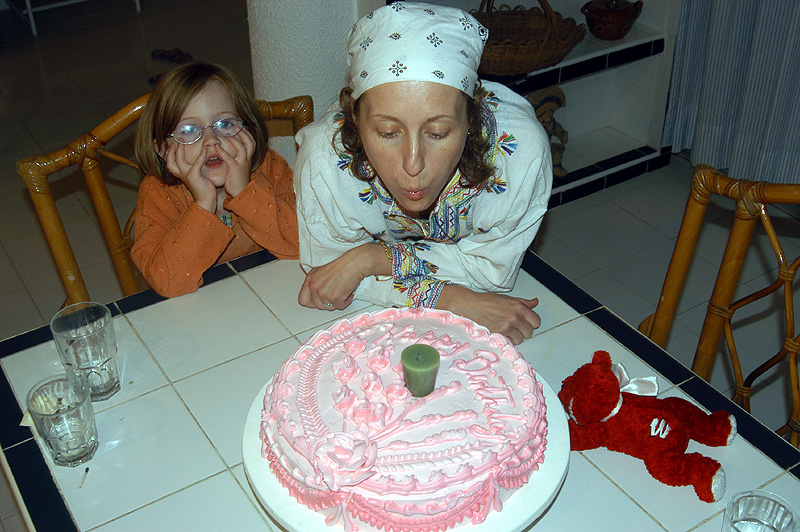Murder used to raise awareness of domestic violence
Domestic violence can lurk below the surface for years in a relationship before it erupts.
That’s one lesson that Larry Lima hopes can be drawn from the death of Lawrence resident Carmin Ross, who was stabbed and beaten to death by her ex-husband three years ago Tuesday at her home outside of Lawrence.
Lima, a social worker living in California, was Ross’ fiance at the time of her death. Today, he’s speaking out to raise awareness of the early warning signs of domestic violence.
“Carmin had endured what many men and women suffer before the hitting,” Lima said. “Abusers create fear and control in their spouse using emotional abuse, psychological abuse. Some of it is very subtle. … It was clearly a domestic-violence homicide, which got really hushed up.”
At the time of her killing, the 40-year-old Ross had divorced Thomas E. Murray, a Kansas State University English professor, and was seeking to move to California with their daughter, Ciara, to live with Lima.
On Nov. 14, 2003, Lima called the Douglas County Sheriff’s Office because he couldn’t reach Ross by phone. A deputy found her body inside her home on East 1150 Road north of Lawrence. She had been beaten on the head and stabbed 13 times in the neck.

Ciara Ross, left, watches as her mother, Carmin Ross, blows out a candle two months before Carmin was murdered just outside Lawrence. Carmin's ex-husband, Thomas Murray, was convicted of her murder in March of 2005.
Murray was convicted of first-degree murder, and his case is now on appeal. People who knew Ross told investigators that Murray was controlling, made all the decisions in the family and punished Ross emotionally.
Sandy Barnett, executive director of the Kansas Coalition Against Sexual and Domestic Violence, said there are not always obvious “red flags” of a potentially abusive relationship.
“By the time it becomes apparent that there’s a real problem, folks are often well deep into it, and abusers have gained a substantial amount of control,” she said. “For bystanders, it’s difficult to assess whether intervening may enhance safety or danger.”
Barnett said one of the best things loved ones can do if they think someone is in an abusive relationship is to send the following message: “This is what I’m seeing, and it concerns me. I’m here and available for you.”
“Just laying the foundation to know that she can come to you feels like so little, and yet it is so much,” she said. “Yes, it’s a risk that it may not be fully welcome. On the other hand, if it’s done discreetly and from a place of caring, I think that it’s worth the risk.”
Lima said he doesn’t want Ross, a trained mediator who believed in nonviolence, to be forgotten. After her death, he began volunteering with the San Diego Family Justice Center, an agency that helps victims of domestic violence, and with the San Diego Police Department’s domestic-violence crisis-response team.
“One of my goals is to let more and more people understand the severity and the importance of recognizing some of the characteristics or traits that can lead to the physical part” of abuse, Lima said. “If you can recognize that, the whole family can get some support before it escalates to a physical or life-threatening situation.”
Warning signs
If one or more of the following things describes your partner, you may want to consider talking with someone about the relationship, according to Women’s Transitional Care Services:
¢ has a history of bad relationships, is secretive about past relationships or seems to only have bad things to say about most past partners.
¢ pressures you into doing things you don’t want to do.
¢ is jealous or possessive.
¢ uses looks and gestures to intimidate you by communicating that he or she is getting angry.
¢ criticizes you constantly for the way you look, act, dress, parent or talk, or for your interests.
¢ tells you or makes you feel that you are incompetent or unable to handle daily life.
¢ monitors your activities and demands to know every detail of what you did with your day or outing.
¢ throws things, yells loudly or calls you names when angry.
¢ keeps you from leaving the room during an argument.
A more detailed list is available online at www.wtcskansas.org. The agency can be reached at 843-3333.







